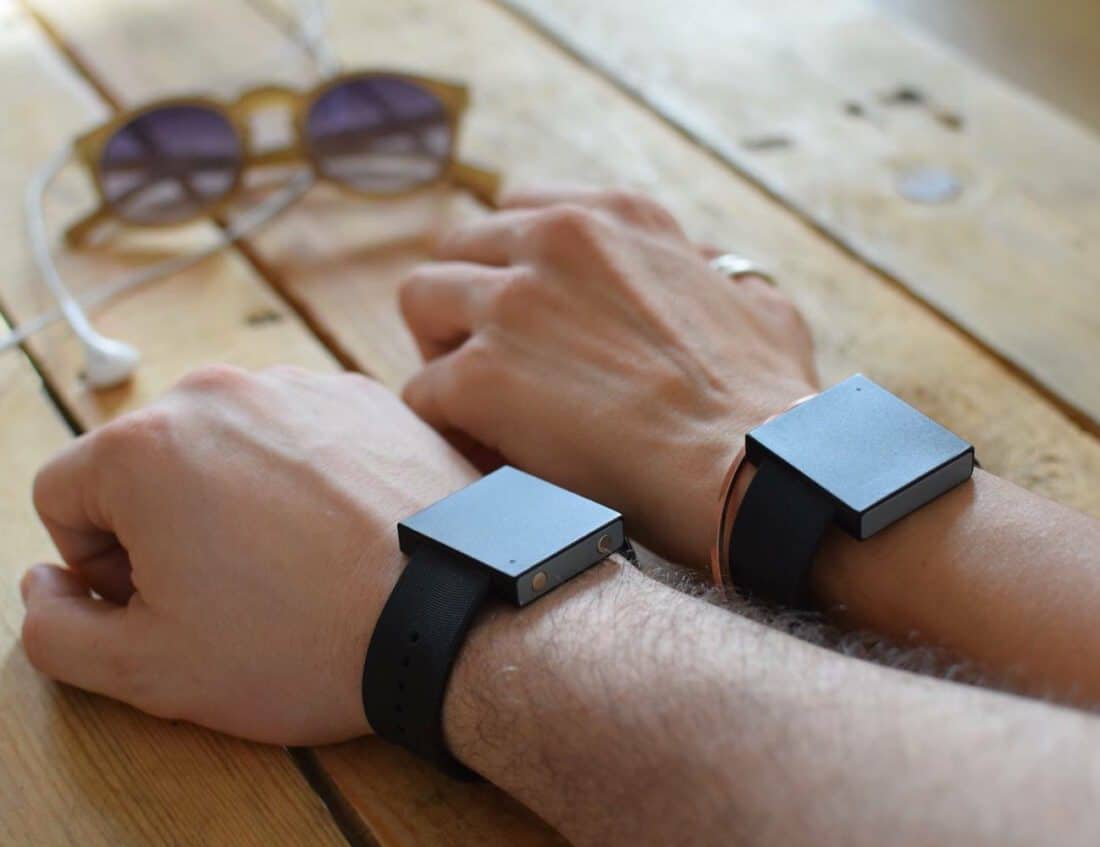With four new headsets coming in the next two years, Meta Platforms is determined to stake its claim to the Metaverse – if not control it completely. But it’s also rushing to acquire other startups with technologies that would transform how we interact in virtual worlds in the future. Meta’s latest acquisition is the Berlin-based haptic startup, Lofelt. Unlike other haptic solutions, Lofelt made small, discreet, wearable devices that you can use all day. Just the kind of tech we need if we are to spend extended periods in virtual worlds.

Meta’s Lofelt Acquisition
Unlike many tech startups, Lofelt was born in Berlin’s thriving electronic music scene:
Started by members of Berlin’s electronic music software community, Lofelt is a company that specialises in the development of haptic technology. Specifically, this involves the conversion of visual and auditory stimuli into felt, physical feedback through mechanical touch, force and vibration. [RA / Electronic Music Online]
This isn’t a complex haptic solution that will let you hold an object or feel a bump on your chest. But it provides feedback through a tiny wrist wearable that gives a deep sense of immersion. The challenge Lofelt never really solved was that the sensations always seem localized to your wrist, and music – especially deep throbbing baselines – is a full-body experience.
But Meta is likely acquiring Lofelt for more than its immersive sound capabilities. Last year, Meta was rumored to be exploring wrist-worn devices as the basis of a new interface for AR experiences. Meta has experimented with electromyography solutions that would pick up the movement of your fingers in your wrist. It’s not so much a haptic device as a controller for immersive experiences. Whether that’s the incentive to acquire Lofelt remains to be seen, but we need something other than the bulky handheld controllers we currently rely on. Gamers may love them, but the rest of the world doesn’t – and the Metaverse will be much more than a gaming platform.
Ethical Issues in Wrist Tracking Devices
If Meta is moving toward a wrist-based solution for haptic feedback and XR interface design, it raises a host of ethical issues. Combined with eye-tracking technologies that will be a standard feature in future XR headsets, wrist devices will generate massive amounts of personal data that Meta and other companies are dying to get their hands on. We’ve yet to resolve the personal data issues with our social media platforms, and here we are – on the cusp of a new era of corporate ownership over every glance of our eyes and movements of our hands.
The EU will likely push back on wrist-based interfaces if Meta and other companies have control over the data generated. Here in States, it seems like we need years of scandals and data breaches before anyone takes notice of the privacy and ethical issues.
Will Meta Platforms’ Acquisitions Go Too Far?

Meta is already dealing with an FTC challenge to its acquisition of Within, which created the popular VR fitness app, Supernatural. And they’ve moved into other areas as well, acquiring startups that better position them for the Metaverse.
As Road2VR notes,
Over the past two years Meta has acquired a number of VR studios, including Beat Games (Beat Saber), Sanzaru Games (Asgard’s Wrath and others), Ready at Dawn (Lone Echo and others), Downpour Interactive (Onward), and BigBox VR (Population: One). Its recent XR hardware acquisitions include VR/AR display makers Imagine Optix, wrist-worn haptics company CTRL-labs, and computer vision studio Scape Technologies.
Apple has been doing the same, even without a publically available XR device. The Lofelt acquisition won’t trigger an FTC move but don’t be surprised to see more antitrust action if Meta continues this pace. After all the years of Facebook scandals, Zuckerberg doesn’t have a lot of friends in Washington. And a data-gathering wearable on your wrist isn’t going to put him in a better light.
Emory Craig is a writer, speaker, and consultant specializing in virtual reality (VR) and generative AI. With a rich background in art, new media, and higher education, he is a sought-after speaker at international conferences. Emory shares unique insights on innovation and collaborates with universities, nonprofits, businesses, and international organizations to develop transformative initiatives in XR, GenAI, and digital ethics. Passionate about harnessing the potential of cutting-edge technologies, he explores the ethical ramifications of blending the real with the virtual, sparking meaningful conversations about the future of human experience in an increasingly interconnected world.

